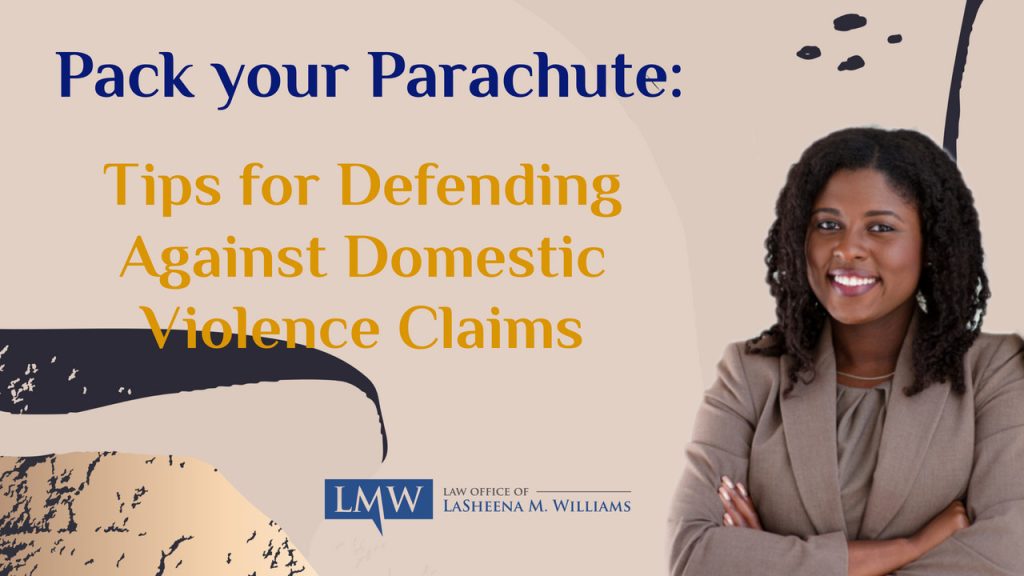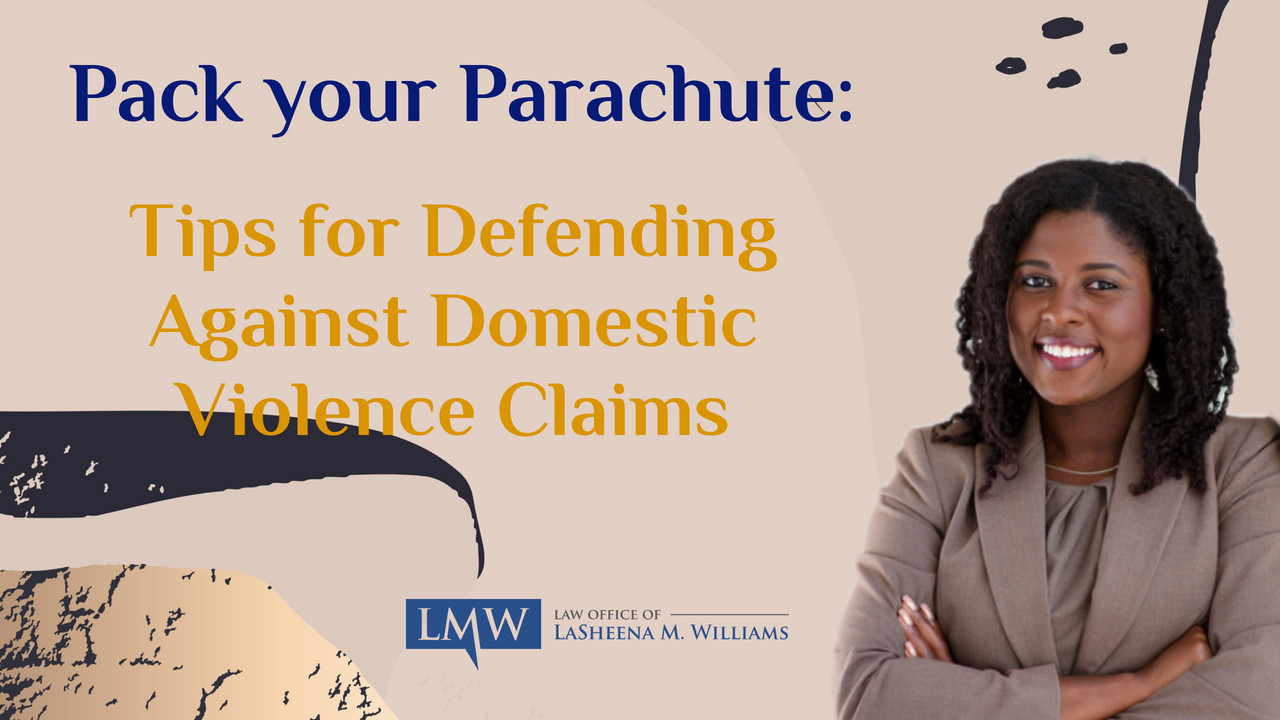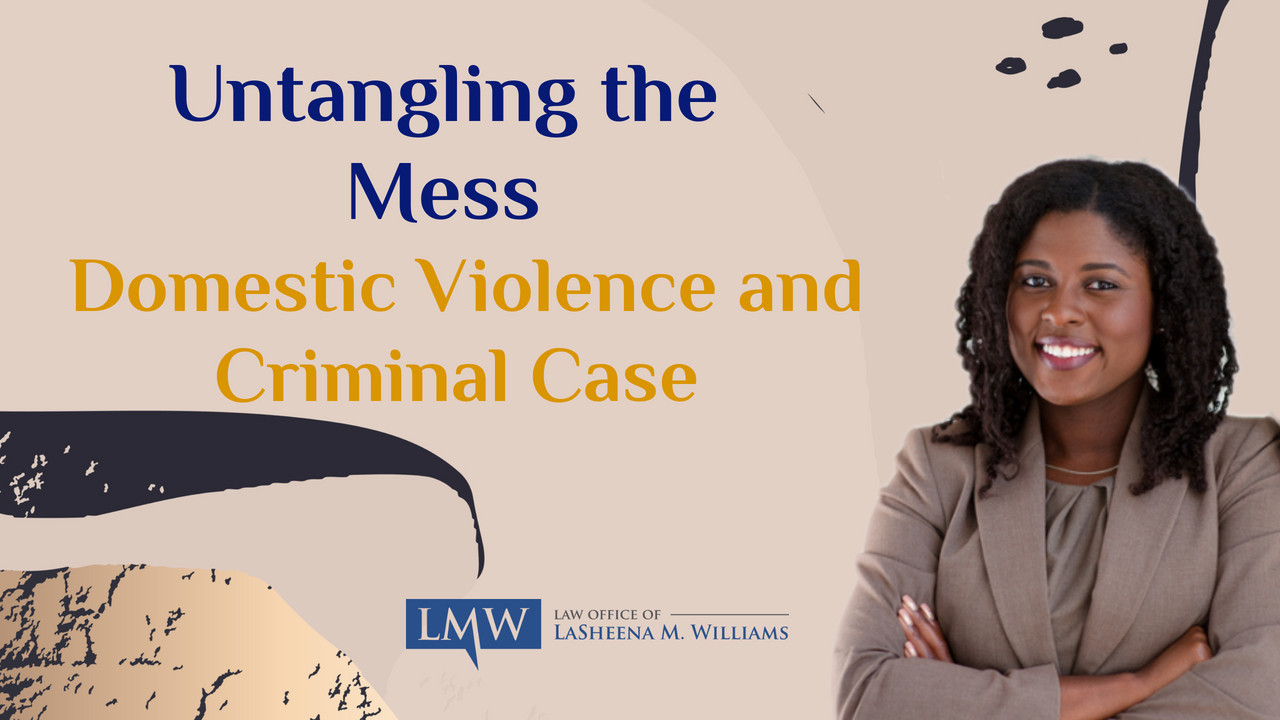Thank you for joining me. My name is LaSheena Williams, and I am a Maryland family law attorney. My firm helps our clients take control of out-of-control domestic situations. Today we will be discussing tips for defending against a domestic violence claim.
Gather your Witnesses
If you are currently the respondent in a domestic violence matter, it is very important to gather your witnesses. A lot of the times it may be hard to know who your witnesses are in these situations. the situation that is the main point of the petition for protection may have occurred and there were no witnesses, but often if there are allegations that prior domestic violence concerns that happen, there may be a witness at one of the prior incidents. So, you must really look at the petition for protection and find out who may be available to testify regarding what occurred, whether it’s a past event or present event. You also may want to obtain subpoenas. A lot of the times people do not want to be involved in domestic violence matters or litigation period. They don’t want to take the time off work. They have a busy life. They have a busy schedule and that’s not necessarily something they might be interested in. It’s important to talk with your witnesses as soon as possible and it’s important to get any subpoenas you may need or have your attorney file any motions for virtual appearances you may need for the court to get the full picture of what happened with the circumstances surrounding the petition for protection.
Avoid Contact with the Petitioner
If you currently have a temporary or an intern protective order in place, it is very important that you do not contact the petitioner. At this stage it’s important for you to follow the rules and follow the requirements under your petition for protection and under those types of orders it’s common that there’s no contact between you and the petitioner. If you need something from your home or if you need something addressed that’s a major concern, you may need to do so through your attorney. You may not want to communicate with the petitioner through friends, family, or associates because that may be a violation of your petition for protection. Typically, an interim protective order and a temporary protective order are only in place for a very short time, and while everything can seem like an emergency or an exigent circumstance when your life isn’t an upheaval because someone filed a petition for protection against you, you are better off waiting to avoid potentially violating that petition for protection and causing additional problems in your life.
Do Not Violate the Protective Order Terms
Please do not violate the terms of your protective order. Even if you think there’s room for you to do X or room for you to do Y, the fact of the matter is that the ball is not in your court. You are under court order to not do certain acts. The petitioner is not under any court order to do any acts. So, even if what you’re doing is in response to an action by the petitioner, the fact of the matter is because a temporary or an interim protective order was granted against you, you are not necessarily given the benefit of the doubt here. So, for the duration of these protective orders you do not want to violate them. especially if it’s a situation where there’s a very fine line between the likelihood that that petitioner might be granted a final protective order, you don’t want to sort of muddy the waters by having multiple violations of the protective order entered against you. Those are separate criminal charges that you either did or didn’t do and they may outlast even the petition for protection. You don’t want those impacting what the court may decide to do at the end in the petition for protective order hearing. So, you want to make sure that the whole situation is clear, clean even though everything is an upheaval, you want to really make sure you do not violate that petition for protection even if whatever you want to do seems like an emergency and seems important at that time, nothing is more important than having additional charges pending against you.
Prepare with your Attorney
It is very important that you prepare for your final protective order hearing with an attorney. You want to know what your options are, whether you will consent to the entry of an order, whether you will consent to a different agreement that’s not even a protective order, or whether or not you’re going to have a full-blown trial and who your witnesses are and how you’re going to approach your trial. You don’t want to be put in a position where your whole life is based off you testifying in a way that’s not perceived well from the court, or you attempting to present evidence incorrectly. You want to make sure that the best version of you is presented and that your story is complete in front of the court before the court makes a decision that may impact your life for the next year or longer.
If you have any questions about preparing your defense for a domestic violence matter or any other domestic related issues in Maryland, contact the Law Office of LaSheena M. Williams at (301) 778 – 9950 or leave an online request for a consultation.



